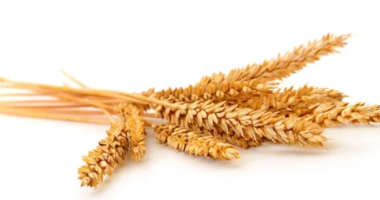“We found a three-fold increased risk of acute myocardial infarction and stroke in the first two weeks following COVID-19,” said Osvaldo Fonseca Rodriguez from Umea University in Sweden, and co-first author of the study.
Coronavirus can severely damage your lungs and can cause respiratory disorders. But is that it? No, the virus has much more to offer. Once the virus enters the body, it reaches the lungs causing acute reparatory distress syndromes, it then spread to the other organs leading to more severe health conditions. A recent study by The Lancet revealed that the infected individual is not just at risk of suffering serious lung problems, but the infection can also raise the risk of heart attack and stroke in the first two weeks following COVID-19 infection by almost three-fold.
Increased Risk of Acute Myocardial infarction and stroke
The study compared the occurrence of acute myocardial infarction, heart attack, and stroke in 86,742 COVID-19 patients with 348,481 control individuals in Sweden from February 1 to September 14, 2020. “We found a three-fold increased risk of acute myocardial infarction and stroke in the first two weeks following COVID-19,” said Osvaldo Fonseca Rodriguez from Umea University in Sweden, and co-first author of the study.
Acute Cardiovascular Complications In COVID Patients
The risk was the same even after the researchers adjusted for known risk factors for acute myocardial infarction and stroke such as comorbidities, age, gender, and socio-economic factors. “The results indicate that acute cardiovascular complications represent an important clinical manifestation of COVID-19,” said Ioannis Katsoularis from Umea University, a co-author of the study. “Our results also show how important it is to vaccinate against COVID-19, in particular the elderly who are at increased risk of acute cardiovascular events,” Katsoularis said.
COVID-1 Is A Risk Factor For Acute Myocardial Infarction
The researchers used two statistical methods in the study: the matched cohort study and the self-controlled case series. The self-controlled case series study is a method that was originally invented to determine the risk of complications following vaccines, they said. “Both the methods suggest that COVID-19 is a risk factor for acute myocardial infarction and ischaemic stroke,” the authors of the study said. “This indicates that acute myocardial infarction and ischaemic stroke represent a part of the clinical picture of COVID-19, and highlights the need for vaccination against COVID-19,” they said.
In the study, information from national registries from the Public Health Agency of Sweden, Statistics Sweden, and the National Board of Health and Welfare was cross-linked for all reported COVID-19 patients. A control group of four individuals matched to every COVID-19 case on age, gender, and county of residence had not tested positive for COVID-19. By using historical registry data from the National Board of Health and Welfare’s inpatient registry, individuals with a previous myocardial infarction and stroke were identified and excluded from the study.
“It would have been difficult to calculate the risk that COVID-19 contributes to acute myocardial infarction and stroke if individuals with a prior event were included,” said Krister Lindmark, a co-author of the study. “This is because the risk of a recurrent acute myocardial infarction and stroke is increased following a first acute myocardial infarction or stroke,” Lindmark added.
This post first appeared on The Health Site







